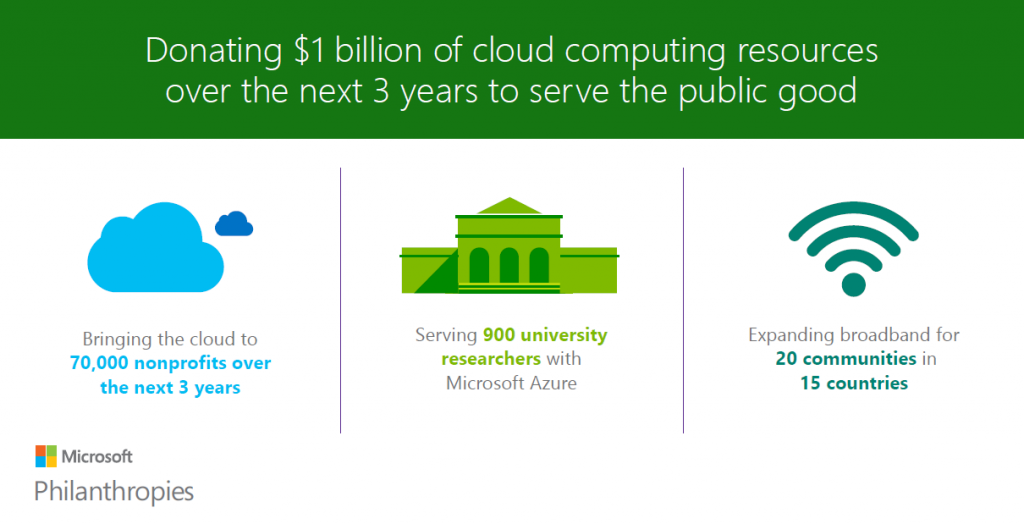Cloud Computing Made More Accessible with a $1 Billion Donation in Cloud Services
Imagine a world where every community can make use of basic technology to gain access to tools and skills that can empower them to improve their lives. This is what drives Microsoft Philanthropies, a new organisation within Microsoft which seeks to help communities around the world tackle societal challenges through driving digital inclusion and empowerment. One of the organisation’s latest initiative is a three-part programme that will leverage Microsoft’s cloud computing capabilities to serve the greater good, beginning with a $1 billion donation of Microsoft Cloud services to nonprofits and university researchers over the next three years.
“Microsoft is empowering mission-driven organisations around the planet with a donation of cloud computing services—the most transformative technologies of our generation,” announced Microsoft CEO Satya Nadella. “Now, more than 70,000 organisations will have access to technology that will help them solve our greatest societal challenges and ultimately improve human conditions and drive new growth equally.”
Microsoft’s strong belief in the potential of cloud computing is not unfounded; already, cloud computing has been making headlines for spearheading breakthroughs to years-old conundrums. For instance, news abound of how gamers from around the world had solved a 10-year-old problem in AIDS research in just three weeks through a program called Foldit, while the geoscience community is sharing geophysics data through “virtual laboratories” to better address the issue of climate change together. Similarly, Microsoft hopes to fuel similar breakthroughs that can change lives through the donation.
Part of this donation entails making Microsoft Cloud Services, such as Microsoft Azure and Microsoft Dynamics CRM Online, more available for nonprofit organisations through Microsoft Philanthropies. Built upon an already successful programme that provides similar access to Office 365 for nonprofits, this initiative will begin rolling out in March, with Microsoft Philanthropies aiming to serve 70,000 nonprofits in the next three years with these Microsoft Cloud Services.
The Microsoft Azure for Research programme will also be extended to universities to help them accelerate their research, providing free cloud computing resources for over 600 research projects on six continents. Finally, to support even more communities, Microsoft Philanthropies and Microsoft Business Development will combine the donated Microsoft Cloud Services with low-cost last-mile Internet access technologies and community training.
As one of the nonprofit organisations that will benefit from this programme, NetHope is optimistic about its far-reaching impact on the world.
“Access to technology is critical to the operations and services of NetHope and its 44 humanitarian nonprofit member organisations,” said NetHope CEO Lauren Woodman. “The power of cloud computing will create exponential value for all we do to serve the millions of people in our communities around the world.”
